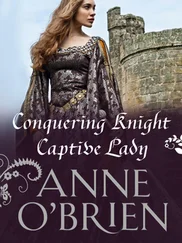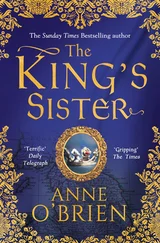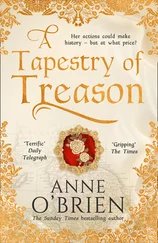His bare chest, broad and scarred with a crisscross of cuts in various stages of healing, expanded with a deep intake of breath. I’d never felt the misery I’d seen in regular mermaids, but his reaction to me—like I was filling some emotional tank—wasn’t too hard to understand. I felt the same way.
Calder’s body warmed me even more than the fire. I curled into his chest and wrapped one arm around him, pulling my knee up over his leg. He drew me closer, and I inhaled the patchouli-like scent of smoke and incense that perfumed his skin and flooded my mind with memories. He dipped his chin and tipped mine up, kissing me.
“Don’t fall asleep,” he said. “You need to get back to your room before your dad gets up for a midnight snack.”
I smiled at the thought of getting caught, but it barely moved my lips. All I could think of was how stupid I was being. Why had I suggested Canada? I wished I’d never brought it up. Why drag out hope for the Pettits that Jack was alive? It was cruel, really. Irrational thought must be the result of interrupted sleep. Right now, I wanted nothing more than three solid hours of dreamlessness. Was that really so much to ask?
No more , I said soundlessly.
Though Nadia had been dead for over thirty years, I trusted she could hear me. I’m just so tired. No more dreams .
“Don’t fall asleep,” Calder said.
But I counted my breaths like sheep, marking each one with another plea because I knew Nadia had more to say tonight, and just like that, in the silent space between two breaths, the line between our two selves began to blur and blend like cream stirred into coffee. I slipped deeper into the dark well of her mind, my bloodstream cooling and my mind roiling bleak and black until the moment when I lost myself: I am me, and then I am we, and then I am not.
* * *
Nadia swims the shoreline. Her body is a solid sheath of muscle and pink iridescent scales that dazzle the school of fish trailing in her wake. Her mind is a tangled web of fury and grief. Someone has wronged her, and whoever that is, he should be afraid. She emerges from the lake, breaking the silver plane with head and shoulders. Dark rings of water run from her body.
Through her large eyes I see my house. Lichen grows on the shingles. Ah, I understand things now. It has been a long time since Tom Hancock has been here. It has been many years since he took Nadia’s son.
I clutch my chest in pain. From Nadia’s center, dark anger simmers, then boils like pitch, finally exploding in a bolt of electricity from her eyes and fingertips. The electric charge strikes an enormous willow tree at the shoreline and splits a branch down the length of the trunk, charring it, laying it bare on top of the water. Small green leaves rain down.
A sound of disgust rattles in the back of her throat, and with a great whip of her tail, she drowns the beach in a wave.
The dream drifted effortlessly to a new scene: a very young Maris cowers in the shadow of a sunken log and watches her mother. Nadia feels her eyes on her but does not acknowledge her daughter’s presence. Instead, she weaves in and out of caves, scraping her belly and tail along the rock, releasing her grief in a long trail of blood. She sings a lullaby that turns into a dirge.
Then there is a noise, or the feeling of noise: a suction and a sinking. And then again, this time louder and heavier than before. The sound pulls Nadia away from the rocks, and she spies a tiny boy clawing with open fingers for the surface. His jaw slackens as his head falls forward, his body rising as if pulled upward from the shoulders. A tremor of bubbles, and the last bit of air escapes the little boy’s nose.
Black heavy curls float around the boy’s small face like a dark angel’s halo. “Calder!” I call out with a gasp.
I woke with a start. A cool hand rested gently on my shoulder and rocked me back and forth. “Babe, it’s time. You’ve got to get ready.”
I scowled at whatever was shaking me. Too rough. Too much. Stop it.
“Babe, it’s time to get up.”
I opened my eyes, disoriented for a moment, thinking the window was in the wrong place and I was too high off the ground. I gripped the edge of my blanket, hoping to find my place in the texture of its fabric.
“You fell asleep downstairs,” Calder said. “I had to carry you up before your parents woke up.”
“Oh,” I said, slowly recognizing the dead-poet portraits on my bedroom wall and the mountain of clean and dirty laundry on the floor. “Sorry.”
“Never a problem.”
I could still feel the coolness of Nadia’s pulse in the pendant. I rolled over so Calder couldn’t see my face. He had an easy enough time reading my emotions without letting him see the worry so plainly on my face.
“You really need to get a good night’s sleep,” he said. “It’s like trying to raise the dead with you.”
That’s ironic , I thought, covering my head with a pillow. Every time I fell asleep I raised the dead.
He whipped the pillow away and dropped it on the floor. “What’s wrong?” His voice was tinged with worry.
I gave him a withering look. “Just a dream.”
“Tell me.”
I groaned and stared up at the ceiling. “You don’t want to hear it.”
“Tell me anyway. If you talk about it, the dreams will go away.”
Yeah, sure . “Maybe if I talk about it, you’ll get pissed off.”
“I’ll try very hard not to.”
I looked over at him and had to grimace at his vain attempt to plaster a patient expression on his face.
“Fine,” he said. “Don’t tell me. But it’s ten o’clock. We should get going soon.”
He was right, but it didn’t make me want to hurry. Actually, I felt a little sick about what the day held in store. Maris had called the house the day before—which was weird and unsettling in itself—but she didn’t have a choice because Calder refused to take her calls when she tried his cell. Maris and Pavati’s winter hiatus in New Orleans was over. They were migrating back to Bayfield, and she had called to say they’d be here by noon. The fact that they’d called at all led Calder to one conclusion, but Maris didn’t say if Pavati had had a boy or a girl.
CALDER
Lily dragged her feet like they were encased in concrete. She’d already changed her outfit three times, making me wait in the hallway outside her room, then flinging the door open for a two-second fashion show. If I didn’t react quickly enough, she groaned and slammed the door—opening it again a few minutes later, wearing something completely different.
“I know what you’re doing,” I said through the door. “You’re just stalling. It doesn’t matter what you wear.”
“If you’re making me go, I want to look good!” she yelled back.
“For what? For whom? It’s Maris and Pavati, for God’s sake.”
“Exactly!”
I still didn’t get it, but when she whipped the door open to outfit number five (yellow leg warmers, a green corduroy miniskirt, and a Sgt. Pepper’s Lonely Hearts Club Band T-shirt), I was quick to say, “Perfect. I love it. Now can we go?”
“Fine,” she said, stomping down the stairs to the kitchen. “But I don’t see why we have to. If there’s really a baby, it’s Danny’s problem. Not yours. And definitely not mine.” She opened the refrigerator and drank milk straight from the carton.
“Because I don’t trust Daniel Catron to make good on his parental obligations,” I said, holding out the phone to her. “And since when did you turn into such an animal?”
“What do you mean?”
I gestured at the milk carton still at her mouth. “As for Daniel, I want to make sure he takes responsibility for the baby, and I want to make sure he gives it back when it’s time. It’s a long summer, and for a big lake, it can sometimes feel awfully small. If he bails on Pavati, we’ll all pay the price somehow. You should call him.”
Читать дальше












